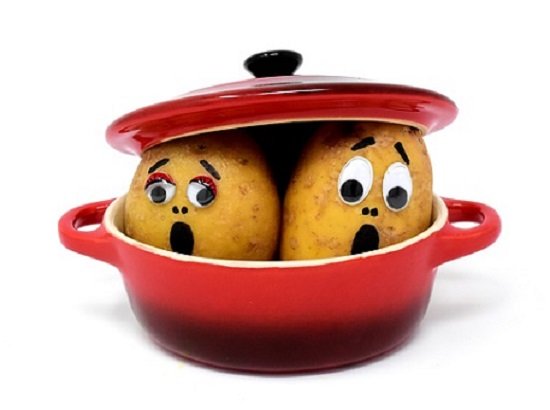Introduction
Let me begin with letting you know that every organ corresponds to the energy of a certain emotion, and every disease stems from an imbalance in an organ or its meridians (energy channels).
All emotions are inevitable, physiologically normal and will not cause disease when they arise in daily life. They are only considered as pathological when they are repressed, contained, or expressed intensely, often, without control, or out of context.

Emotional You (License: Public Domain]: Pixabay
Many times a physical disorder linked to a certain organ actually stems from an imbalance in the emotion associated with that organ. The reverse could be true: an imbalanced organ can heighten the specific emotion experienced by an individual. It can become a vicious cycle.
Now into more detailing...
Fear
Fear is the emotion of the kidneys and the bladder, organs. When we experience extreme fright, our kidneys struggle to hold qi and we can quite literally pee in our pants. Involuntary urination like this is often seen in ‘stage fright’. Fear is a normal adaptive emotion, but can become chronic when we ignore it.
 Fear (License: Public Domain]: Pixabay
Fear (License: Public Domain]: Pixabay Despite the main function of this organ is waste removal and is responsible in purifying the body to maintain balance and keep it functioning in harmony, kidney issues can arise when we are dealing with fear, such as a change in life direction or unstable living conditions. Fear causes and can manifest as chronic adrenal fatigue with the never ending tired-but-wired feeling, making you experience frequent urination, slowly leading to urinary tract infections, back pain, and insomnia due to the inability to “let go” from not feeling safe.
The adrenal glands located on top of the kidneys, also produces adrenaline in response to fear being experienced by a person, which is then released to the blood stream. This also, unwittingly stresses the kidney into an overwork.
FEAR LESS.
Worry and Nervousness
A very common emotion in our stress-filled society, worry can deplete life energy. This can cause digestive disturbances and eventually lead to chronic fatigue. The stomach shoulders the long-term effects of worry, weakening digestive fire. This lowers hydrochloric acid production and can cause bloating, gas, and changes in bowel habits while thinning gut lining. A person who worries too much "carries the weight of the world on her shoulders." Notice that when you are worried you feel a ‘rumble’ in your stomach.
Too much pensiveness, worrying and insecurity clearly weakens our ability to digest. When we are anxious, we find it hard to digest and accept a situation or life event.
LIVE LIFE AS IF EVERYTHING IS RIGGED IN YOUR FAVOR.
Happiness and Joy
Even the good emotions can be out of balance. The emotion of joy is connected with the heart. A disorder related to joy may sound perplexing, since most people want as much joy in their life as possible. The disorders from this emotion are not caused by happiness; rather, the imbalance comes from too much excitement or stimulation, or sudden good news that comes as a shock to the system. When evaluating stress levels, psychologists look at all sources of stress, both positive and negative.
 Happiness and Joy (License: Public Domain]:
Pixabay
Happiness and Joy (License: Public Domain]:
Pixabay A person who is constantly on the go, partying, and living a life of excess can eventually develop heart imbalances with palpitations, anxiety, and insomnia. At this point the heart isn’t maintaining a stable resting pace and such imbalances may also lead to other emotional symptoms, since the heart is ‘the seat of the spirit’.
Grief and Depression
 A Typical State of Grief and Depression (License: Public Domain]: Pixabay
A Typical State of Grief and Depression (License: Public Domain]: Pixabay The lungs are sensitive and vulnerable to many of the same emotional states as the heart, and responds similarly. They need a feeling of psychic space within which to function. We often use the phrase, “breathing room” as a common expression but have obviously never thought of its total connection to this. Excessive crying, tightness in the chest, shortness of breath, all effects of grief and depression likewise the feeling of being smothered, invalidated, or denied one's space. These constrict the lungs and cause respiratory problems. Conversely, a feeling of dignity and pride puffs up the chest, and allows the lungs to expand and function properly. It’s important that we give ourselves space to deal with painful events rather than stifling them!
Anger and Frustration
The liver and the gallbladder are the organs affected the most when anger sets in. Bile is produced by the liver and stored in the gall bladder, which makes these two organs vulnerable to negative choleric emotions like anger, irritability, frustration, resentment, jealousy and envy. These negative Choleric emotions are stored in these organs, and can slowly eat away if allowed to fester. Anger and rage can explode upwards from the liver into the head, causing a lot of havoc in their wake: headaches, migraines; red, sore, bloodshot eyes; and muscular tension in the neck and shoulders.
You see, the liver is an important organ of detoxification in the human body. It breaks down and removes toxins and other substances that can damage body cells and tissues, therefore, an issue with this organ means less detoxification and more setbacks for your body system.
Avoiding outbursts of anger will protect your liver and gallbladder health.
LIVE EASY my friend.
Concluding Thoughts...
You may find it hard to believe but every feeling you have influences some part of your body, and for example anxiety can wreak mayhem on your physical health. So if you want to have more control over your physical health and well being, then take more control over your emotional well being. STAY POSITIVE, STAY HAPPY AND STAY HEALTHY!
References
The Root of Emotional Imbalance, According to Your Organs
How your emotions affect your body organs
The Strange Connection Between Organs + Emotions
All images are licensed under creative commons and eligible for commercial use.
hye ! I am husnain and i look your article it is very good article .
I think may be this article will get more upvotes
thanx please look my blog about science and inform me about my blog
Downvoting a post can decrease pending rewards and make it less visible. Common reasons:
Submit
I hope so Husnain. Thank you.
Downvoting a post can decrease pending rewards and make it less visible. Common reasons:
Submit
welcome ! raysmart
Downvoting a post can decrease pending rewards and make it less visible. Common reasons:
Submit
Why then did you flag him if you think his article was great ?
Downvoting a post can decrease pending rewards and make it less visible. Common reasons:
Submit
can you talking with me ? kingabesh
Downvoting a post can decrease pending rewards and make it less visible. Common reasons:
Submit
Beause i really like him and i think more people will also upvote him .
Downvoting a post can decrease pending rewards and make it less visible. Common reasons:
Submit
A flag is a downvote! A vote is a vote. Don't flag people without a reason, as it is abuse and can have consequences for you..
Downvoting a post can decrease pending rewards and make it less visible. Common reasons:
Submit
Congratulations @raysmart! You have completed some achievement on Steemit and have been rewarded with new badge(s) :
Click on the badge to view your Board of Honor.
If you no longer want to receive notifications, reply to this comment with the word
STOPDo not miss the last announcement from @steemitboard!
Downvoting a post can decrease pending rewards and make it less visible. Common reasons:
Submit
Although your article looks very nice and sourced, I just can't believe some of the things in it.
For example I wasn't aware that qi is something that was proven.
And there are more things that tripped me off.
Keep writing but try to source your articles better so that we can verify some of their claims.
Thanks!
Downvoting a post can decrease pending rewards and make it less visible. Common reasons:
Submit
I honestly appreciate the commendation and advise given. I would definitely put more effort in my sourcing on future articles and produce more verifiable claims.
Thanks alot!
Downvoting a post can decrease pending rewards and make it less visible. Common reasons:
Submit